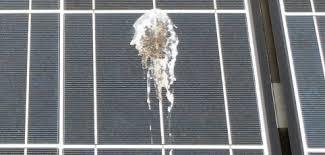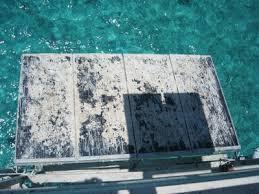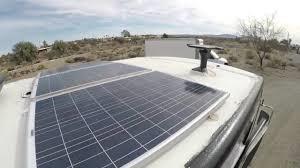- Joined
- Apr 3, 2016
- Messages
- 18
- Reaction score
- 1
Hi there, I was hoping someone could help regarding an issue we are having with our motorhome's solar power system. We are running 2 x 250w house panels,a 40amp MPPT controller,3 x 130amp AGM batteries, and a 3000W inverter. We are continually drawing 2amps, (running gas detectors, fridge management system, hot water management system.) The biggest draw we have is our microwave which draws 150amps (but only in use for 2 - 4 minutes. once or twice a day). We have LED lighting at night and usually only have the minimum on. We run the fridge on gas unless on 240 power. The inverter is only switched on when needed so is not drawing constantly. When the vehicle is stored and not in use the batteries are isolated and are trickle charged by a Projecta Intelli-power battery charger.(12V 7 stage switchmode), which is up to a minimum of 2 weeks or longer at a time, so I would assume that the batteries would be fully charged.
We installed the system 2 1/2 years ago and actually designed the system around running our microwave for short intervals a couple of times a day, and all was going well and getting plenty of power up until a few months ago.
For the last couple of months we seem to be running low on power in the mornings, in fact the meter is reading only half charged first thing up. During the day the panels are putting in around 24 amps and by the afternoon says the batteries are fully charged and it only puts in around 0 amps to 4 amps. We have an amp gauge on the house batteries so we know what we are drawing at all times. While the solar panels are putting in power there is no issue with the usage at all. It will even run the microwave after a few hours of solar charging. But the main concern for us is all of a sudden we seem to be losing our power during the night and have no clue as to why. With each day away the system just doesn't seem to catch us with power storage, in fact after 4 days away the batteries wouldn't even start our onboard generator.
We have load tested the batteries individually and all tested fine. The MPPT controller tested as it should have as well. We have had an electrician check the system and as far as he could tell everything checked out OK. My thoughts are perhaps the battery charger is not up to scratch when we leave home, hence the batteries are not fully charged. Or perhaps there could be a problem with the batteries, or are we just expecting too much out of our system.
If anyone has any suggestions or thoughts as to what could be the reason it would be greatly appreciated.
We installed the system 2 1/2 years ago and actually designed the system around running our microwave for short intervals a couple of times a day, and all was going well and getting plenty of power up until a few months ago.
For the last couple of months we seem to be running low on power in the mornings, in fact the meter is reading only half charged first thing up. During the day the panels are putting in around 24 amps and by the afternoon says the batteries are fully charged and it only puts in around 0 amps to 4 amps. We have an amp gauge on the house batteries so we know what we are drawing at all times. While the solar panels are putting in power there is no issue with the usage at all. It will even run the microwave after a few hours of solar charging. But the main concern for us is all of a sudden we seem to be losing our power during the night and have no clue as to why. With each day away the system just doesn't seem to catch us with power storage, in fact after 4 days away the batteries wouldn't even start our onboard generator.
We have load tested the batteries individually and all tested fine. The MPPT controller tested as it should have as well. We have had an electrician check the system and as far as he could tell everything checked out OK. My thoughts are perhaps the battery charger is not up to scratch when we leave home, hence the batteries are not fully charged. Or perhaps there could be a problem with the batteries, or are we just expecting too much out of our system.
If anyone has any suggestions or thoughts as to what could be the reason it would be greatly appreciated.






